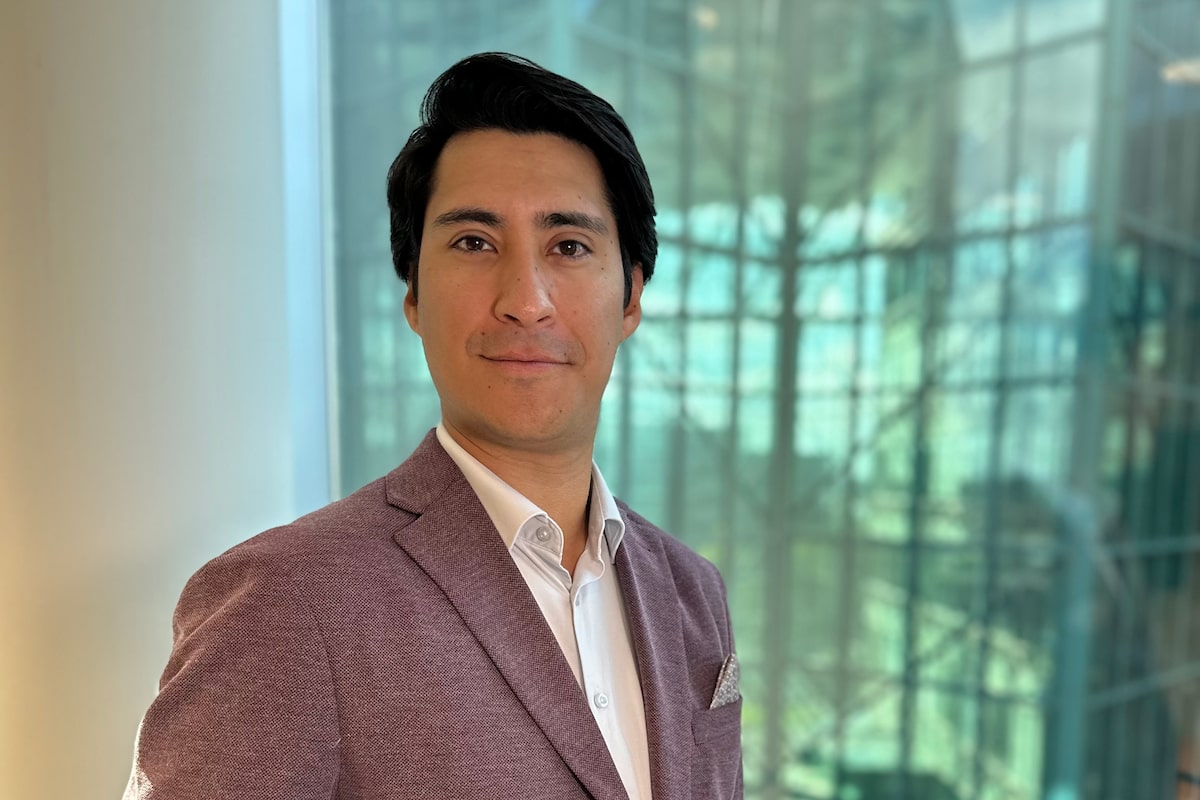Karac Graham, associate investment advisor with Moyle Rowley Wealth Management Group at Wellington-Altus Private Wealth Inc., in Barrie, Ont.Supplied
In the Behind the Advice series, Globe Advisor asks advisors about their relationship with money from a young age, lessons learned over the years and how their experiences influence the advice they give to clients. We’ve also launched a Behind the Advice podcast – find all the episodes here.
Karac Graham, associate investment advisor with Moyle Rowley Wealth Management Group at Wellington-Altus Private Wealth Inc., in Barrie, Ont., talks about his family’s work ethic and money rules and the part-time job in university that inspired him to become an advisor:
Describe your upbringing
I was born into private adoption in Ottawa and raised in North Bay, Ont. It was a modest upbringing. My father worked extremely long hours to run a small business, and my mother took on part-time work in addition to her full-time teaching job to support my sister and me.
Nothing came for free in my household. If I wanted to do something, I had to work for it. I was incentivized with money to get good grades in school. As kids, we had to start working at the age of 14 to support our leisure activities. I worked at my dad’s sporting goods store and then at Future Shop (before it was acquired by Best Buy and I was laid off).
I learned early on about financial independence and how you can lose a job based on corporate changes.
What did you want to be growing up, and how did you get into financial services?
When I was younger, I wanted to be an engineer. As I grew older and watched my dad run his business, I wanted to be a business owner like him. Then, when I was 18, I met my birth mother. She runs her own business in the U.S. I always felt I shared an entrepreneurial mindset with my dad, but when I met my birth mother, it was reinforced.
I studied business at the University of Guelph, and in my second year, I took on a part-time job as a bank teller during which I encountered wealth advisors and gained a deeper understanding of their roles. It was then that I had my ‘a ha’ moment and realized that being an advisor was the perfect mix of strategy, technical and interpersonal skills that I was looking for.
I also loved the stock market. I then declared my major in management economics, and finance. I worked my way up in that bank for years with one target in mind: to break into the wealth management channel, which I eventually did.
What is the biggest money mistake you’ve made, and what did you learn from it?
Investing in speculative mining stocks within my TFSA 10 years ago, when I was younger and far less educated than I am now. I lost about 50 per cent of my investment, withdrew the funds, and decreased my TFSA contribution room permanently.
I learned that the tax-free compound interest over time is the best plan of attack for a TFSA and to leave the speculation to non-registered accounts, in which you can at least claim the losses.
I’m glad I made that mistake at a young age when I had more time to make up the losses instead of later in life.
What’s the hardest piece of money advice for you to follow?
Having an emergency savings account with three months of expenses is a common and great piece of financial advice. Instead, I have savings in the form of liquid investments. I’m aware that it’s great advice to have those emergency savings as cash, but I am stubborn and love compounding. Nobody is perfect.
What are you best at when it comes to your own finances?
I am completely unemotional about the headlines. You must be to manage your money effectively. If I made investment decisions based on news headlines, I’d be in cash 100 per cent of the time.
What do you see happening in your industry that worries you?
I worry there are too many people taking the blanket advice from influencers online as gospel. A notable example of this is the low-cost, balanced exchange-traded fund as a portfolio solution, which is amazing advice for some people.
Risk tolerance and a capacity for risk are different factors for everybody, so the cookie-cutter solution of a 60-40 balanced ETF cannot be the best advice for everyone. It’s not overwhelmingly bad advice, but I prefer bespoke over blanket.
What advice do you have for someone who wants to enter your business?
Reach out to people who work in this industry, have coffee chats to learn about their careers, and probe them for opportunities. Once I got my foot in the door at a bank, I worked my way up and approached every advisor team in a 100-kilometre radius for a year and a half until I found the right fit to get started in wealth management.
Show interest, skills, and a willingness to learn. Keep working at it until somebody says yes. If you want it bad enough, you’ll get it.
This interview has been edited and condensed.

